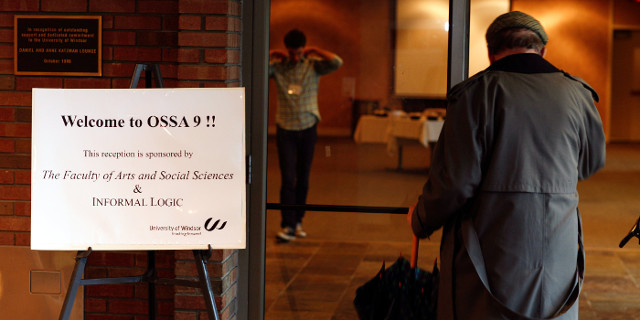
Location
University of Windsor
Document Type
Paper
Keywords
reasonable hostility, civility, argument, conduct norm, public hearing, citizen testimony, civil unions, same-sex marriage, discourse, grounded practical theory
Start Date
18-5-2011 9:00 AM
End Date
21-5-2011 5:00 PM
Abstract
“Reasonable hostility” is a norm of communicative conduct initially developed by studying public exchanges in education governance meetings in local U.S. communities. In this paper I consider the norm’s usefulness for and applicability to a U.S. state-level public hearing about a bill to legalize civil unions. Following an explication of reasonable hostility and grounded practical theory, the approach to inquiry that guides my work, I describe Hawaii’s 2009, 18-hour public hearing and analyze selected seg-ments of it. I show that this particular public hearing raised demands for testifiers on the anti-civil union side of the argument that reasonable hostility does not do a good job of addressing. Development of a norm of communication conduct for this practice, as well as others, must engage with the culture and time-specific beliefs that a society holds, beliefs that will shape not only how to argue but what may be argued and what must be assumed about particular categories of persons.
Creative Commons License

This work is licensed under a Creative Commons Attribution 4.0 International License.
Included in
“Reasonable hostility”: Its usefulness and limitation as a norm for public hearings
University of Windsor
“Reasonable hostility” is a norm of communicative conduct initially developed by studying public exchanges in education governance meetings in local U.S. communities. In this paper I consider the norm’s usefulness for and applicability to a U.S. state-level public hearing about a bill to legalize civil unions. Following an explication of reasonable hostility and grounded practical theory, the approach to inquiry that guides my work, I describe Hawaii’s 2009, 18-hour public hearing and analyze selected seg-ments of it. I show that this particular public hearing raised demands for testifiers on the anti-civil union side of the argument that reasonable hostility does not do a good job of addressing. Development of a norm of communication conduct for this practice, as well as others, must engage with the culture and time-specific beliefs that a society holds, beliefs that will shape not only how to argue but what may be argued and what must be assumed about particular categories of persons.
